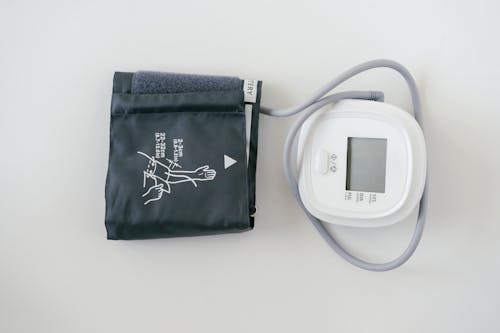
Once you discover activities that lower blood pressure that works for you, it can be life-changing. I had gestational hypertension (or high blood pressure) in the last trimester of my pregnancy with my two older kids. Thankfully, that went away after I gave birth to them. However, an unexpected pregnancy 8 years after the last birth resulted in pre-eclampsia. I was diagnosed with hypertension in the first trimester, with symptoms like headaches, vomiting, nausea, and increased heart rate. And after I gave birth, I was extremely disappointed that my hypertension became a chronic condition at 36 years old.
Thankfully, my cardiologist managed to lower my medication, so instead of taking three pills a day, we were able to reduce it to one maintenance medication. I read up on the issue and felt comforted somehow with the knowledge that I was not alone. According to the World Health Organization, around 1.28 billion adults globally between 30 to 79 years old have hypertension.
Unfortunately, hypertension is dubbed a “silent killer” because most people are unaware that they have the problem. Some experience no warning signs or feel tolerable symptoms which they attribute to fatigue until they eventually experience a stroke or heart attack. Thus, getting your blood pressure taken regularly is essential. Let’s find out more about this alarming health condition and learn ways to lower your blood pressure:
What Exactly is High Blood Pressure or Hypertension?
Everyone can get a blood pressure reading which indicates the force exerted by circulating blood against the walls of your arteries and other major blood vessels. Hypertension happens when your blood pressure reading is too high.
Blood pressure readings come in pairs, so the first number is systolic, which shows the pressure when your heart beats or contracts. The second number is the diastolic, representing the pressure in your vessels when your heart rests in between beats. You have hypertension if the systolic is greater than or equal to 140mmHg and the diastolic is greater than or equal to 90mmHg.
The higher your blood pressure, the more force pushes against the arteries and blood vessels. This equates to stress that can lead to their eventual damage. For this reason, many with uncontrolled hypertension suffer a heart attack. On top of that, high blood pressure is aggravated by high levels of bad cholesterol, which you can thankfully control with lifestyle habits.
Risk Factors for Hypertension
You must be aware of the modifiable risk factors for hypertension so you can effectively manage your condition. For example, if you have an unhealthy diet with high salt and too many fats, you increase your blood pressure even more. This also includes lack of activity, excessive stress, and consumption of tobacco and alcohol.
Unfortunately, there are also some non-modifiable risk factors like your genetic makeup. Most people with a family history of hypertension eventually acquire it too. For example, my paternal grandmother also had hypertension for her pregnancies and my father had been diagnosed with hypertension in his 50s, so both my obstetrician and cardiologist were not surprised that I had developed it.
Another risk factor is age, with people over 65 developing the condition due to the natural weakening of the arteries and vessels with old age. Additionally, co-existing diseases like kidney problems or diabetes result in hypertension.

Activities That Lower Blood Pressure: How to Safely Lower Your Blood Pressure
It is a good idea to take your blood pressure every day with an automated machine from the pharmacy. It is quick and painless for easy monitoring. People should take hypertension seriously as it can damage the heart and decrease the flow of oxygenated blood.
Eventually, you can have an irregular heartbeat, chest pains, a heart attack, and heart failure. The blocked arteries can also impede blood flow to the brain, causing a stroke or resulting in kidney damage. Thankfully, you can modify lifestyle habits to lower blood pressure and prevent its escalation. Check out the below activities that lower blood pressure:
Engage in Regular Exercise
Physical activity works remarkably well in lowering blood pressure. When you exercise, you do more than just build muscle mass. It improves your heart and increases blood circulation within your body. Working out also helps lower stress levels. The more stress you have, the higher your blood pressure.
More importantly, engaging in exercise will help you shed pounds and help keep your blood pressure in check. Sadly, studies show that most overweight people have higher blood pressure. If you lose 5% to 10% of your body weight, it can reduce your blood pressure levels.
Fortunately, many exercises are safe for hypertensive patients. Take a look at the following:
- Walking: An excellent choice, especially for beginners, as it provides a good cardiovascular workout. Best of all, you can do it anywhere for free. So there’s no excuse not to get it done!
- Running: This offers a higher intensity than walking and builds up your heart right. This works well in lowering both blood pressure and resting heart rate, promoting excellent heart health.
- Swimming: If you have problems with your knees, swimming is an excellent choice as the water relieves tension on your joints. The repetitive motions of doing laps keep your heart rate up. The water also provides resistance, which can build up your muscles.
- Cycling: Cycling outdoors or on a stationary bike also helps your heart pump more efficiently. This is another workout that burns calories and improves heart health while going easy on your knees.
- Dancing: People who feel unmotivated to exercise may find dancing a great way to get in shape. The music is a great mood booster, while the funky dance moves increase heart rate and improve blood pressure. Moving your limbs and core also improves mobility and flexibility.
- Sports: Engaging in various sports like tennis, boxing, rowing, basketball, or even soccer also assure you get a great cardiovascular workout. Find something you enjoy and stick with it because consistency matters the most.
Reduce Sodium Intake
The primary sodium in most diets is salt. Excessive salt causes water retention, which leads to high blood pressure. Hence, you should minimize salt in cooking and lower your consumption to 1,500mg or less. Unfortunately, salt can sneak up on you when you buy processed foods. So make sure you do the following:
- Read food labels
- Eat less processed or junk food
- Switch to lower-sodium condiments
- Use herbs and spices for flavors
It can be hard to give up salt, especially if your tongue is used to it. For best results, don’t drastically cut it back. Instead, ease into it and gradually decrease sodium from your diet. Your palate will adapt to this over time.
Stick to a Healthy Diet
Since cholesterol contributes to high blood pressure, you must avoid foods high in saturated and trans fats like fatty animal meat, junk food, fried food, and rich desserts. Instead, stick with whole grains, veggies, and fruits.
Be mindful of increasing potassium as it lessens the effect of sodium. Consuming items rich in omega-3 fatty acids like salmon will also increase good cholesterol and help boost your cardiac health. Though changing your eating habits can be challenging, you can adapt to it by:
- Keeping a food journal
- Committing to meal preparation
- Creating a grocery list and sticking to it
When you prioritize the right diet, you keep your heart healthy and strong. There is some truth to the adage you are what you eat. Hence, you must pay attention to what goes into your mouth and make smarter food choices.
Get Enough Sleep
Sleep deprivation will exacerbate hypertension. If you truly want to maintain a healthy lifestyle, you must get 7 to 8 hours of sleep at night. Remember, sleep is your body’s way to recharge itself and heal. If you do not get adequate sleep, your overall health can suffer.
Besides, studies show that people who get less than 6 hours of sleep have higher blood pressure. If you have hypertension, lack of sleep will worsen your condition. Don’t forget to pause and rest because this is a part of a healthy lifestyle.

Manage Your Stress
Stress contributes to high blood pressure, so take time to figure out what causes undue pressure. Then, eliminate what you can control. Though you may not totally stop stress, as problems are a part of life, you can learn to cope and handle things better, so they don’t adversely affect your health. For example, you can try the following:
- Set priorities and manage expectations
- Focus on issues you can solve and control
- Find time to unwind and enjoy activities
- Practice meditation or yoga
- Write a gratitude journal
- Have a good cry (having a good cry can release oxytocin and reduce blood pressure)
Avoid Certain Triggers
Firstly, you must be mindful of alcohol consumption as it contains high levels of sugar that can raise blood pressure. Besides, if you take maintenance medication, alcohol can interfere with its efficacy.
Secondly, you may have to cut down on your caffeine intake as it can raise blood pressure. Caffeine is not just in coffee, but it can sneak up on you in chocolate, tea, soda, and energy drinks.
And above all else, quit smoking because it increases your blood pressure. If you kick the habit, you can reduce your risk of heart disease and lung cancer. Besides, people who do not smoke have better overall health and live longer.
Take a Proactive Approach in Your Health Care
If you have chronic hypertension, it is vital to see your doctor for regular checkups. Use your medications as directed and monitor your blood pressure. If you notice any changes, speak with your cardiologist because your dosage may need adjustments.
Notably, if you do not have hypertension but have a strong family history, you may want to take a proactive approach to control your blood pressure. Remember, lifestyle plays a big role in hypertension, so you can successfully delay or avoid your need for medication by eating healthy, exercising, and cutting bad habits.
It will also help if you take genetic testing to find out your genetic risk of high blood pressure and heart conditions, by taking a DNA test. These detailed CircleDNA results will reveal your predisposition to hypertension. On top of that, the reports recommend the best diet and exercise plan suited for your unique DNA.







Comments are closed.